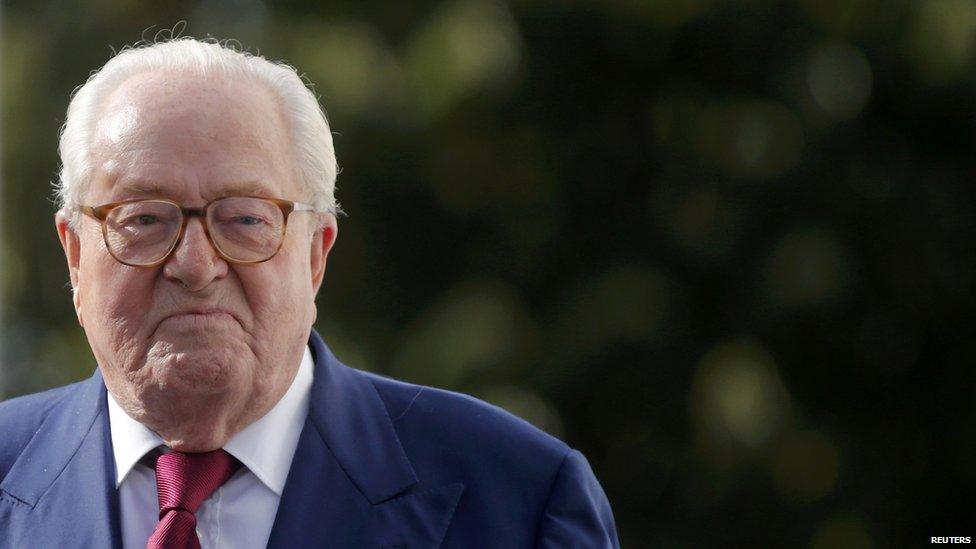Marion Marechal-Le Pen and France's far-right charm offensive
- Published
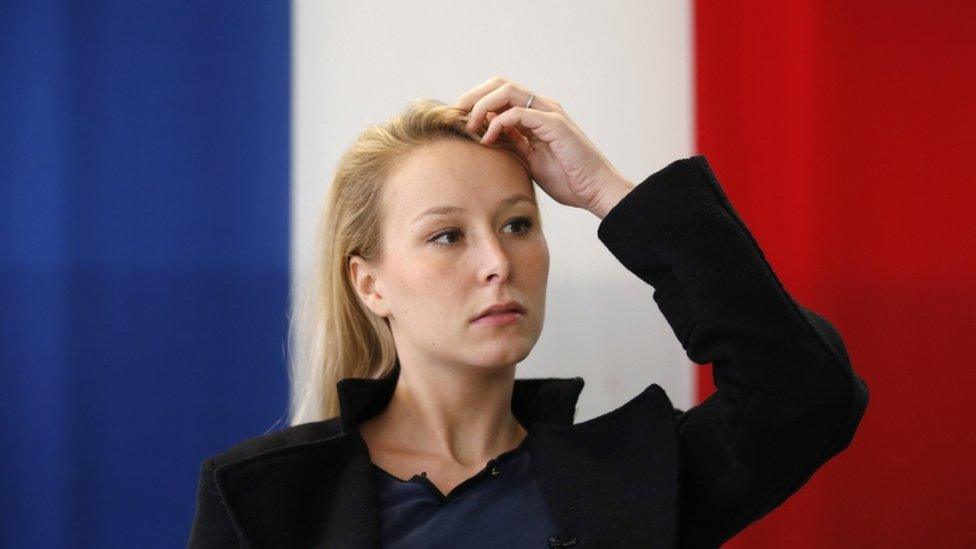
Marion Marechal-Le Pen is leading the FN's campaign in Provence-Alpes-Cotes-d'Azur
Marion Marechal-Le Pen has already turned heads by becoming France's youngest-ever MP.
Now the polls suggest the 25-year-old National Front (FN) candidate looks set to win the first round of Sunday's vote in the south-eastern Provence-Alpes-Cotes-d'Azur region.
She was chosen to replace her 86-year-old grandfather, FN founder Jean-Marie Le Pen, as head of the far-right party's campaign in the crucial region.
He was expelled after a feud with his daughter, Marine Le Pen, who now leads the party and has tried to distance it from accusations of racism and anti-Semitism.
While the youngest Le Pen may be young and photogenic, experts say her looks should not distract from the hardline views she embodies.
Poster girl
Born in 1989, Marion Marechal-Le Pen grew up in the manor house west of Paris that became home to several generations of Le Pens.
Her mother, Yann Le Pen - once an FN events organiser - is the second of Jean-Marie Le Pen's three daughters.
Samuel Marechal, a former FN politician, married Yann and raised Marion as his daughter - although the couple later divorced.
In 2013, Marion Marechal-Le Pen sued L'Express newspaper for invasion of privacy after it revealed that her natural father was the late journalist and diplomat Roger Auque, who was held hostage for months in Lebanon. The newspaper was ordered to pay €10,000 (£7,200) in damages (link in French)., external.

Marion Marechal-Le Pen appears before a traditional Provencal lavender field in her campaign poster
She studied law at university and married fellow FN politician Matthieu Decosse last year. They have a baby girl, Olympe.
At the age of two, Marion Marechal-Le Pen appeared on a FN campaign poster being cuddled by her grandfather.
Despite her far-right DNA, she insists she was not brought up to be a ready-made FN firebrand.
Speaking to the UK's Telegraph newspaper in 2012, external, she said: "Contrary to what everyone thinks, in my family we didn't talk about politics at home and we're free to make our own choices."
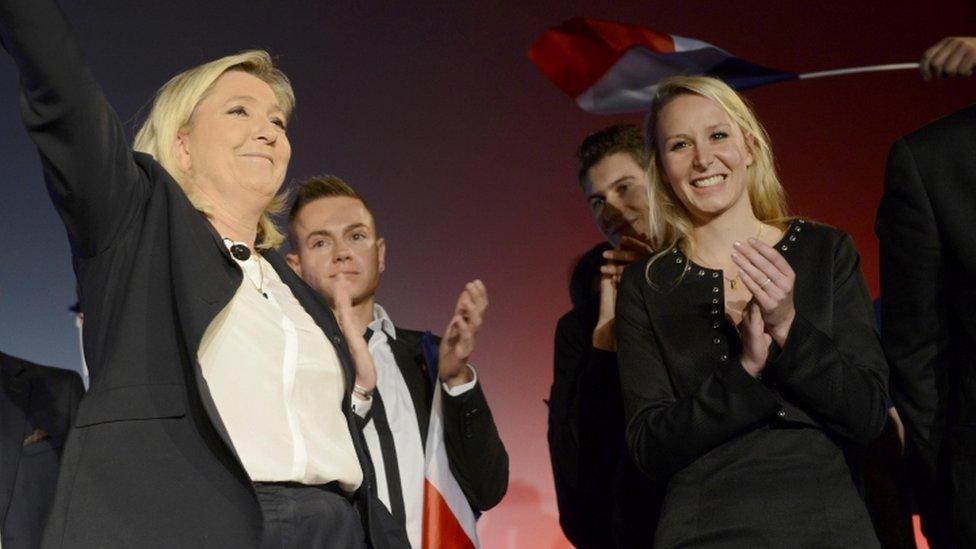
Marion Marechal-Le Pen is described as more right wing than her aunt, Marine Le Pen (left)
However, she was a member of the FN by the age of 18 and two years later stood in 2010 regional elections in Yvelines near Paris.
'True French'
Observers say she appeared shy at times, stumbling over her words.
But any hint of nerves soon began to disappear.
In 2012 she was elected the youngest ever MP to sit in the French parliament.
And she arrived in her constituency of Carpentras, in the south-eastern region of the Vaucluse, determined to clear her grandfather's name.
In 1990, FN supporters had been accused of desecrating a Jewish cemetery in Carpentras, something Jean-Marie Le Pen always denied.
Her charm offensive was a success and the young Parisian was quickly accepted in the south, where FN support has long been strong amid tensions over immigration.
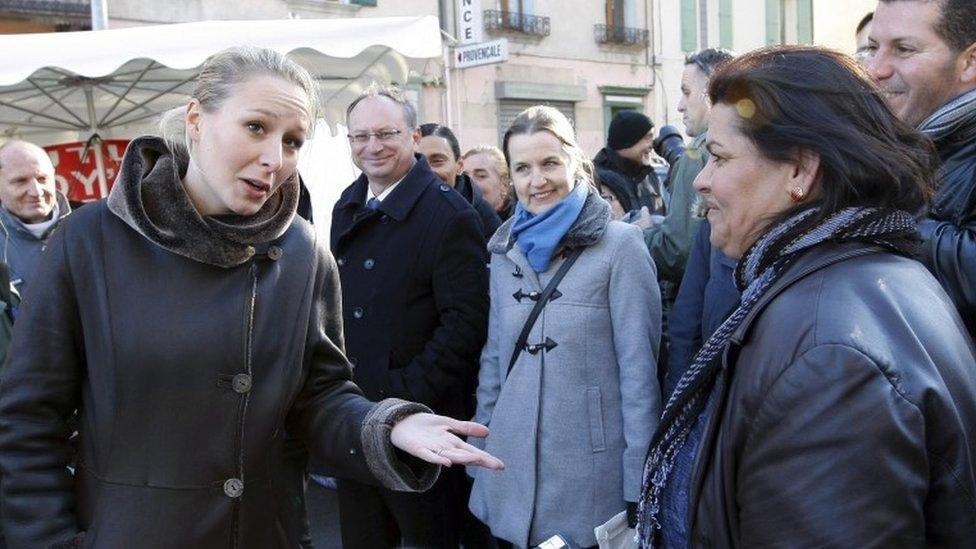
Marion Marechal-Le Pen speaks to residents as she campaigns in Carpentras
A conservative Catholic, she has played a leading role in anti-gay marriage rallies, favouring what she calls the "traditional family".
She has repeatedly spoken of the "true French" identity, demanding Muslims in France adopt values rooted in Christianity.
And one phrase she has repeatedly use of herself is that she is a "Francaise de souche" - of native French stock.
"She has in effect replaced her grandfather, who used to run in the same region, from whom she borrows her worldview and her rhetoric," says Professor Cecile Alduy, an FN expert at Stanford University.
"She says exactly the same things as he used to, except for the anti-Semitic comments he indulged in, but she presents [herself] much better, as a young, fresh, joyful 25-year-old."
Draws large crowds
Even if they do not agree, many voters in the run-up to the December regional elections seem able to forgive her more hardline views, says political journalist Francois Tonneau, who has followed her campaign for local newspaper La Provence.
It is not just her bright smile that helps get people on side, he adds.
She regularly draws large crowds at her "happenings", talking at length to voters in the street.
Unlike her colleagues, she is rarely challenged, Mr Tonneau says - perhaps because she is yet to shoulder much political responsibility.
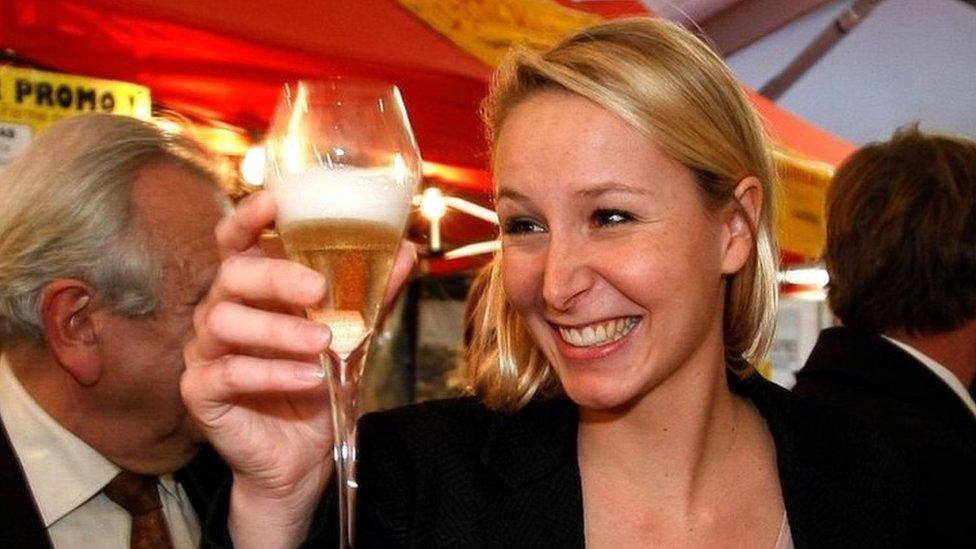
Marion Marechal-Le Pen is a welcome female face for many FN voters
Mr Tonneau notes she often stands with her hands in her pockets - an attempt, he believes, to break the image of the "hypocritical male politician".
The affect of media training is clear, and she has a large, mostly young and male team of advisers behind her.
"For a party with a traditionally masculine image, it has proven extremely useful to put forward another prominent female politician alongside Marine Le Pen," says Aurelien Mondon, a lecturer in French politics at the University of Bath.
Balance between old and new
As well as the support in the street, she has a strong presence on social media and in the press.
In April 2015 she appeared to leave France's Socialist Prime Minister Manuel Valls flustered after calling him a "cretin" in a parliamentary speech. The video went viral.
It was a perfect opportunity to raise the profile of the youngest scion of a party ambitious for power.
As well as her public image, observers say Marion Marechal-Le Pen's appeal lies in her ability to maintain a certain independence.
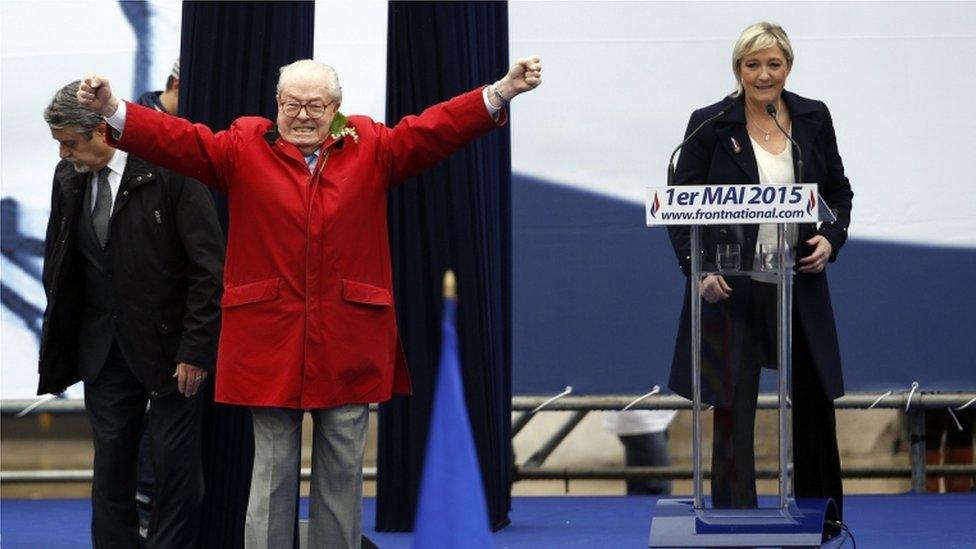
The feud between Jean-Marie Le Pen and Marine Le Pen threatened to engulf the party
Mr Mondon says she has "managed to strike a balance between her modern image and her extreme views, at times at odds with the party leadership".
"Her more traditional approach, often described as closer to Jean-Marie Le Pen's, has also helped assuage the more radical part of the party," he adds.
"While this is proving particularly useful in the south-east, it may end up creating a schism similar to that which took place in the past between different visions of the FN."
- Published1 December 2015
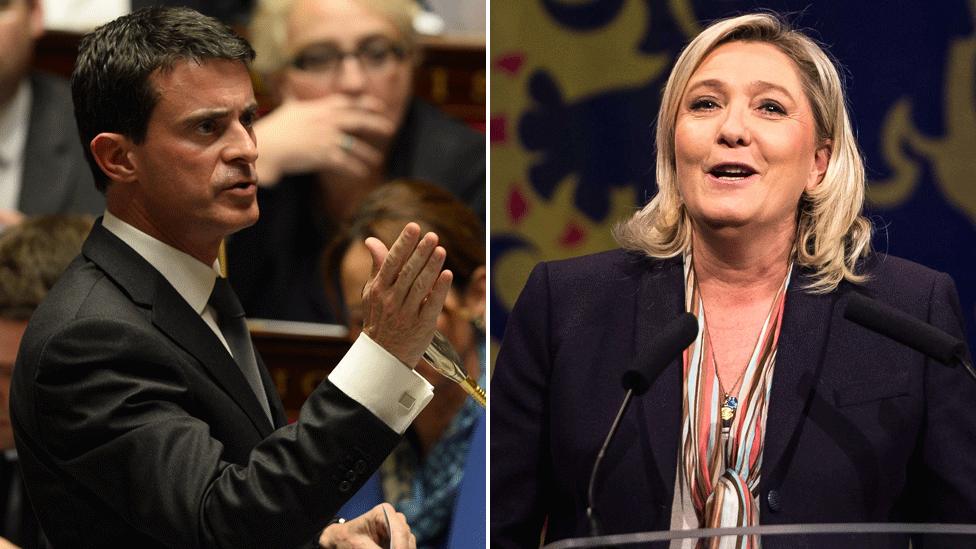
- Published28 October 2015
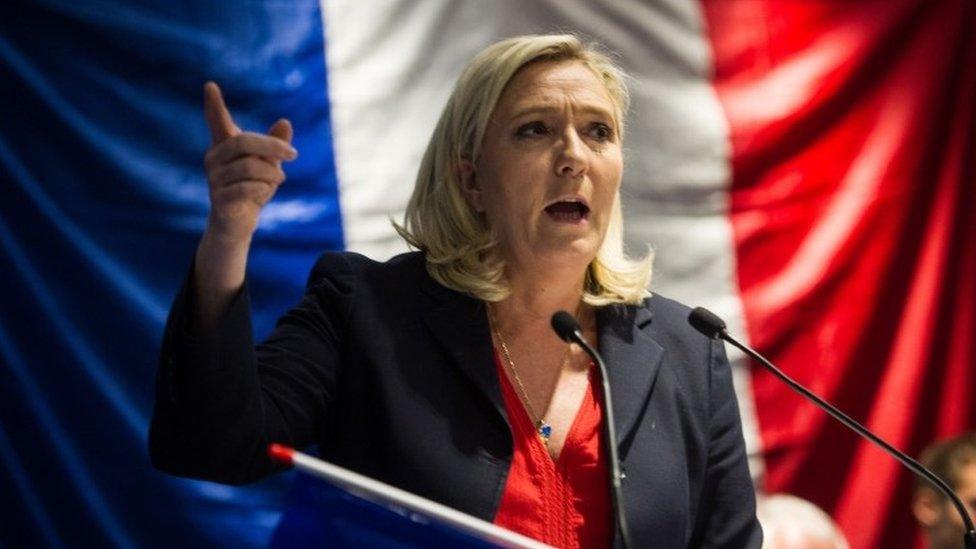
- Published20 October 2015
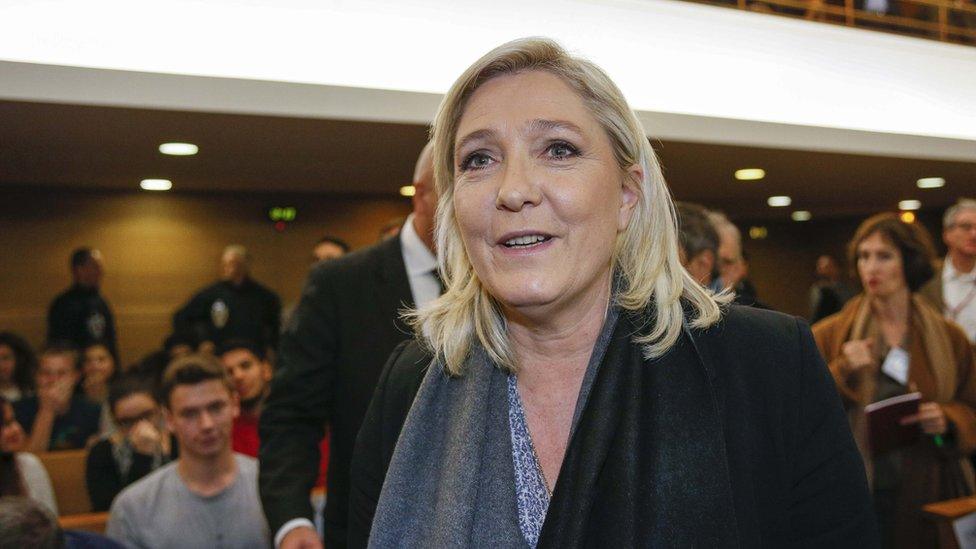
- Published13 March 2015
- Published6 May 2015
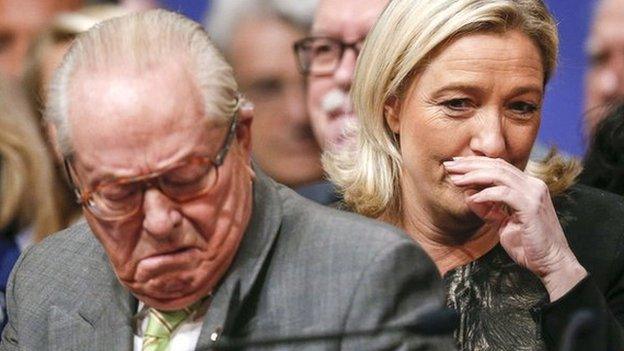
- Published20 August 2015
